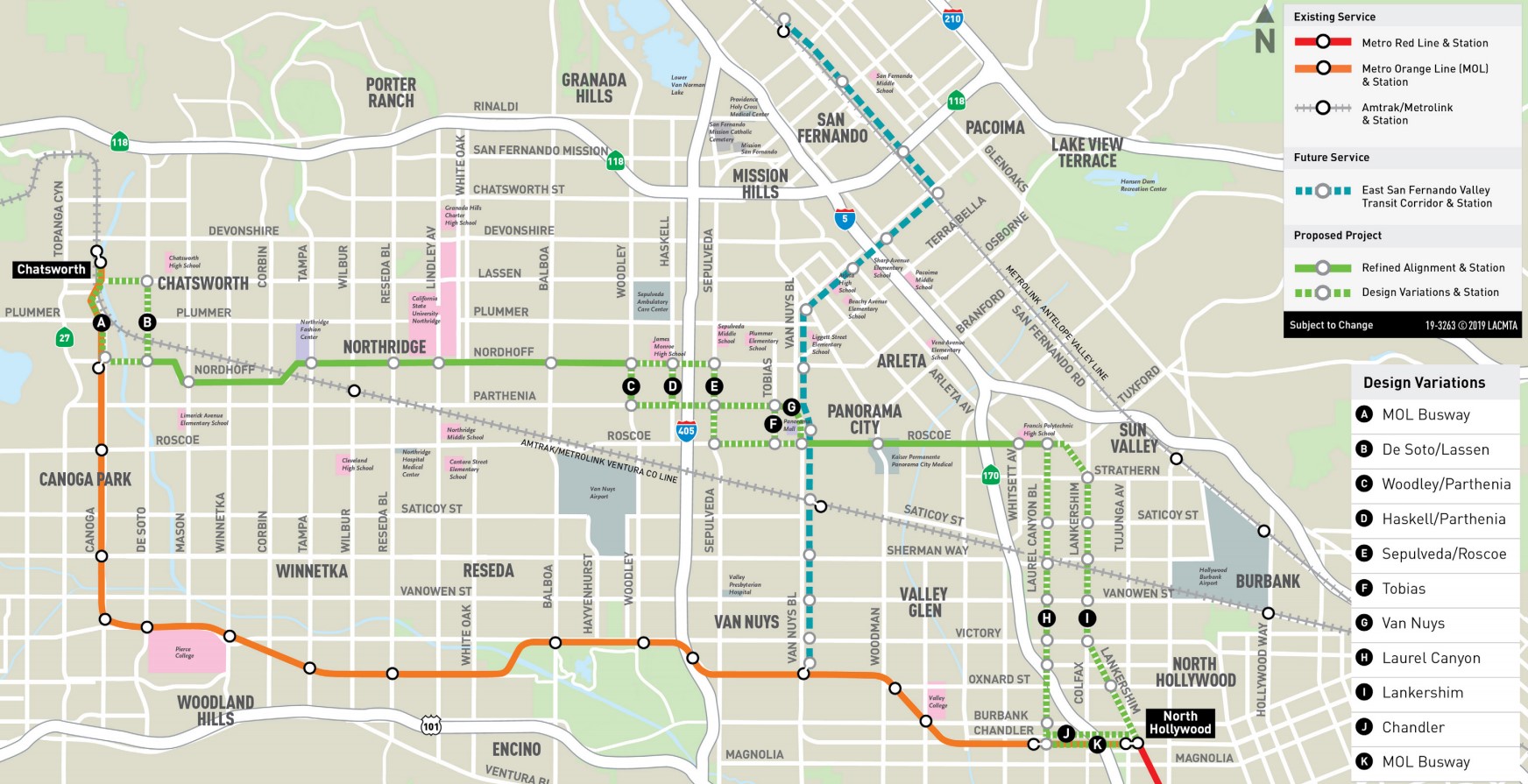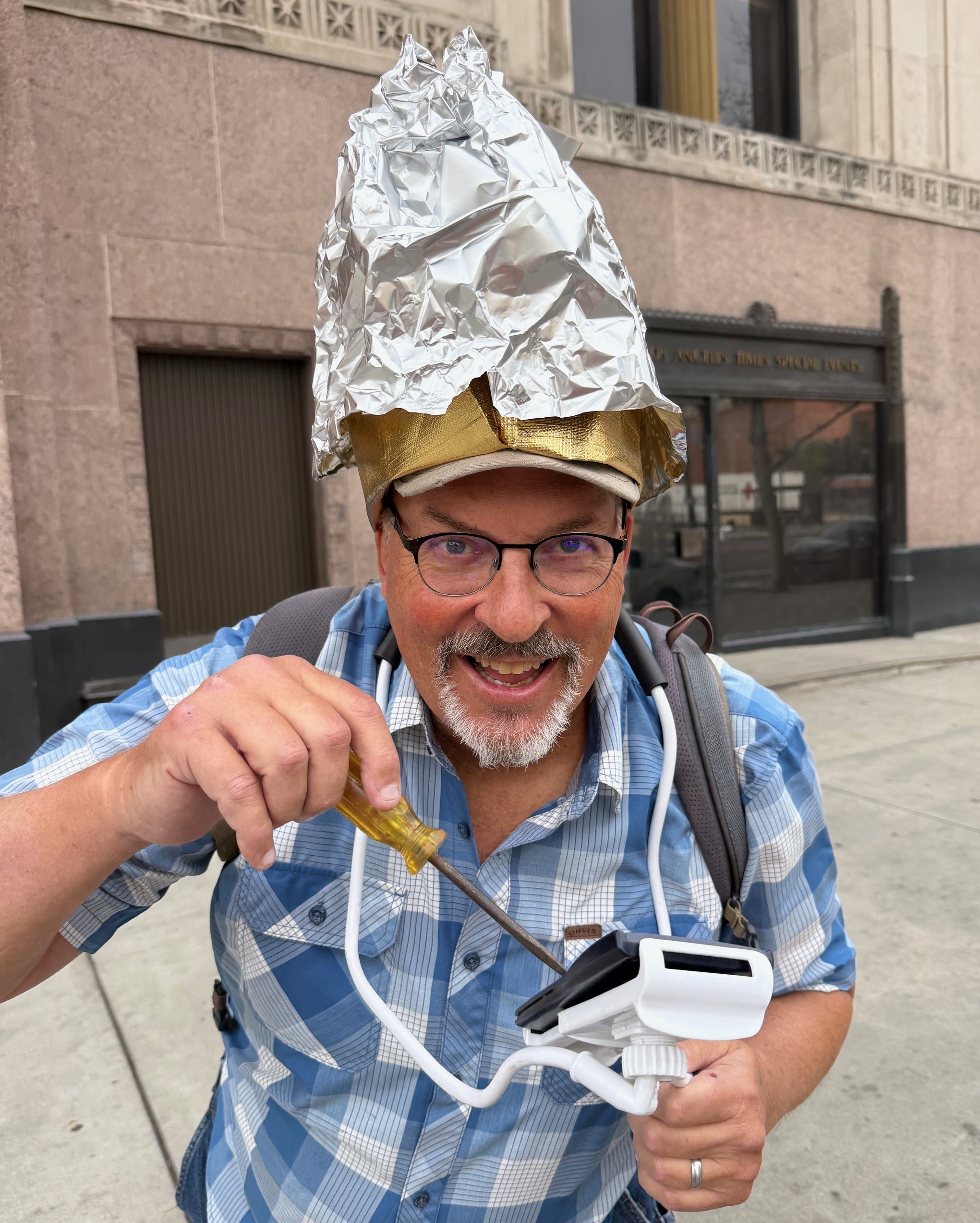Today's Metro board meeting was dominated by a lengthy discussion of Metro's planned North San Fernando Valley Bus Rapid Transit project.
Metro's The North San Fernando Valley Transit Corridor project is a planned Bus Rapid Transit line extending ~18 miles from North Hollywood to Chatsworth. NIMBYs are opposing the project’s planned Nordhoff Street bus-only lanes. The opposition spout xenophobic slurs at community meetings and makes false claims about automatic up-zoning. For more background, see SBLA's post earlier this week.
Public comment was extensive, with more than 70 speakers weighing in. The majority of speakers expressed support for the Valley BRT project; about two dozen expressed opposition.
Comment kicked off with State Senator Bob Hertzberg, who was responsible for the BRT project being included in Measure M. Hertzberg emphasized serving Cal State University Northridge "the largest state university in California" and the urgency of doing the will of L.A. County voters in completing the project by 2025.
Following Hertzberg was L.A. City Councilmember John Lee who campaigned on the slogan "Stop the Nordhoff bus lane project." Lee testified that he supports "a countywide transit system" and stated that "all we're asking for today is for you to study the different routes and to listen to the community's concerns."
Comments showcased widespread institutional support for the BRT project. This included several state elected officials, area Neighborhood Councils, various Cal State Northridge (CSUN) groups, area healthcare institutions, The San Fernando Valley Council of Governments (SFV COG), the Valley Industry & Commerce Association (VICA), the Greater San Fernando Valley Chamber of Commerce, L.A. County Business Federation (BizFed), Fixing Angelenos Stuck in Traffic (FAST), Move L.A., Climate Resolve, and others. No anti-BRT speakers mentioned formal group affiliations, though Jay Beeber's "Save the San Fernando Valley" website has been a focal point for opposition.
Numerous students from CSUN and several high schools spoke in support of the BRT.
Anti-BRT commenters followed several nimby patterns. Many opened noting their longevity in living in the area all their life. Several led with phrases like "I'm not against transit, but..."
A lot of BRT opposition lamented current car traffic impacts already in place in the north Valley. Anti-BRT speakers complained about intrusively tall CSUN parking structures, Nordhoff being "a mess," that it “takes an hour to drive two miles,” difficulty in getting one's car out of one's driveway due to car traffic, and drivers "going 80 miles an hour on neighborhood streets." Sadly, these speakers fail to comprehend that high quality transit can help to solve these problems.
Some BRT opponents repeated gadfly lies about "land-use changes" and "rezoning" resulting in "multi-level buildings." One conspiratorially asserted that Metro was "planning a land grab" to use "eminent domain" for "high-rise apartment buildings."
A few BRT opponents pushed a narrative that homeowner opposition was legitimate, while CSUN student support was not, including because "we're paying the property taxes."
Compared to the public comment, the board discussion was brief. And factual.
Broadly, boardmembers diplomatically pushed back against the nimby comments.
L.A. City Councilmember Paul Krekorian emphasized that this BRT "project is going to happen," and what is needed is studies to determine how and where to "do it right."
County Supervisor Shiela Kuehl noted that she had heard plenty of "this project will destroy the neighborhood" criticism when the Expo Line was being planned, and those Expo neighborhoods are doing fine today. Kuehl also admonished homeowners not to discount and dismiss issues that students are raising.
Glendale Mayor Ara Najarian reminded speakers that the state transit-oriented density S.B. 50 did not pass, so repeated "automatic up-zoning" claims are false.
L.A. Mayor Eric Garcetti assured the opposition that there was "no conspiracy." He brought up climate change (which really could destroy these neighborhoods and wreck their property values) and ultimately stated that the tough BRT route decisions would come back to the Metro board later.
To a large extent the nimbys had already won the day's skirmish. Their backlash delayed the go-ahead decision originally been scheduled for June. Metro chose to undo its routing selection, committing to study less effective alternatives. These additional studies also delay the project.







